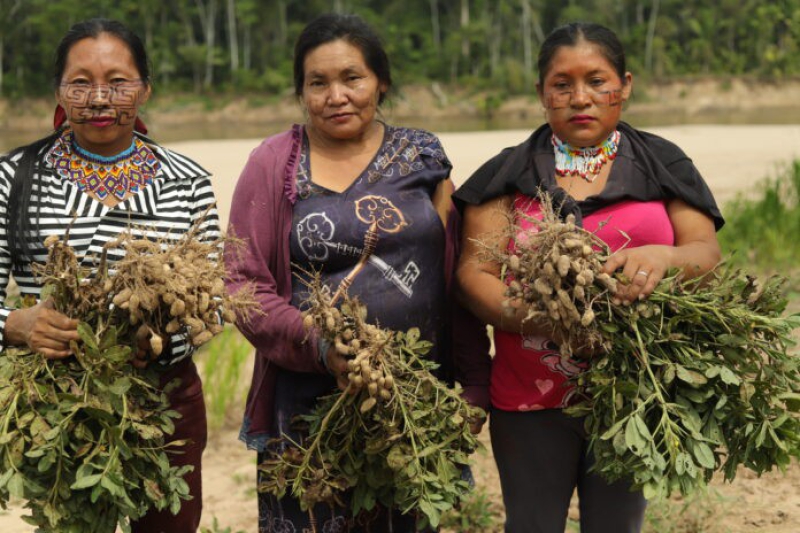
Director Nicole Allgranti directed, photographed, and edited the traditional cuisine of indigenous peoples for the feature film 'Comida Ancestral Food From The Origins,' in a production by Aboim Cinema with FIUP – Indigenous Peoples Unity Festival and Tabocas Filmes. Numerous ethnicities are represented in the documentary, which also received support from Conservation International.
The film – made without sponsorship or grants, with investment, equipment, and initiative from the partners themselves, including Maria Luiza Aboim, Erica Rosendo, Mariana Ribeiro, Xinã Yurá Yawanawa, Nea Varinawa, and Nicole Allgranti in collaboration with indigenous peoples – is co-directed by Môcha Noke Koi and Isaka Bari Huni Kuin.
Five years of work were dedicated to capturing Cintia Flores, a spiritual master of Shipibo origin from the Croa River; the Huni Kuin from the Segredo do Artesão and Água Viva villages in the Kaxinawa Indigenous Land of Praia do Carapanã; Yawanawa from the Amparo and Mutum villages on the Gregório River; Yawalapiti, Kuikuro, and Mehinako from Xingu; Tupi Guarani, Guarani Mbya from the Tapirema and Tabaçu Relo Ypy villages in the Piaçaguera Indigenous Land; Nukini from the Recanto Verde Village in the Serra do Divisor National Park; Shanenawa from Feijó, Katukina from the Tunya village on the Gregório River; Kariri Xocó and Fulni-ô from Alagoas and Pernambuco.
In addition to presenting the preparation of foods such as fish prepared in various forms, game, heart of palm, beiju (cassava flour pancake), pequi broth, pepper soup, and various caiçumas, the film contextualizes the health problems faced by the ethnicities in the voices of Professor Vinya Yawanawa; sertanista (Brazilian term for a backlands explorer), who also contributes to the argument, Antônio Batista de Macedo; and Sônia Guajajara. Due to reasons such as invasions of their lands, lack of game, and the need to buy food in local markets, the attractive 'white man's' food, which encourages the excessive use of sugar and refined salt in the daily lives of these indigenous kitchens, ends up being the option, even if it makes many people ill.
The songs sung by Pinã Varinawa, Pistyani Nukini, Vinya Yawanawa, Shapo Noke Koi, Cintia Flores, among others, are also highlights of the project.
The film aims to premiere at festivals throughout Brazil and later be shown on TV. 'We would love to be on big screens, schools, universities, and take the work to various villages across the country. We are still looking for direct investors interested in the work and licensing,' says the director.



